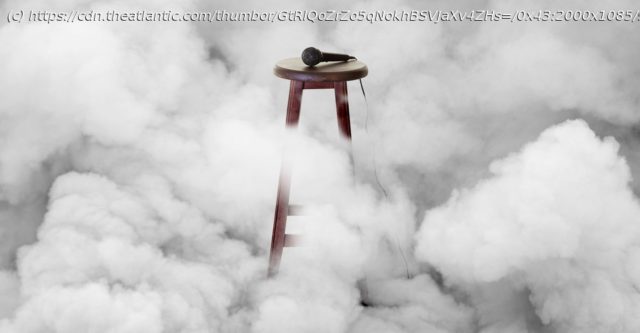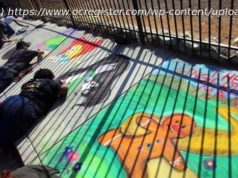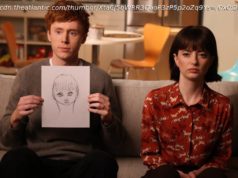The attacks altered the course of modern comedy, fueling the rise of political satire as a form of mainstream entertainment.
A now-familiar joke that started circulating within the first year or two after September 11,2001, goes like this: The punch line, of course, refers to the refrain that became ubiquitous in the United States following the attacks that killed nearly 3,000 people and shattered the country. “Never forget” embodied the reflexive patriotism of a time when people began to affix American flags to their cars and plant them on their front lawns. September 11 was quickly made into something hallowed and untouchable—a malleable symbol and political litmus test as much as a series of terrible events. The knock-knock joke was a small, transgressive gesture; it punctured the etiquette that said humans must approach certain tragedies with a deep moral seriousness. Many such jokes were prevalent during those first years after 9/11. The question of whether they added up to something greater than the sum of their parts—whether they amounted to something like dissent during the George W. Bush era—is one that a new documentary attempts to answer. Too Soon, directed by Nick Scown and Julie Seabaugh, chronicles nearly two decades of 9/11 comedy through interviews with late-night hosts, writers, and stand-up performers. The film is an absorbing journey back to a cultural moment that indelibly altered the course of modern comedy, although it concludes by overstating the power of satire on its own to shape politics. The film unfolds in roughly chronological order, beginning with the initial weeks after September 11, when several New York City comedy clubs temporarily closed and most comedians proceeded carefully for fear of offending a raw and hurting public. “Humor Goes Into Hiding,” announced the think-piece headlines. David Letterman and Jon Stewart issued earnest, tearful responses to 9/11 on air, but not everyone was so cautious. Too Soon takes its title from an audience member’s reaction to a joke told by Gilbert Gottfried two weeks after the towers fell, when there was still smoke in the Manhattan sky. Gottfried briefly lost the crowd after quipping that he couldn’t get a direct flight to California, because the plane had “to stop at the Empire State Building first.” He won them back with his off-color “aristocrats” routine, a version of a vaudeville-era gag involving incest. As Gottfried and other comics explain in the film, Americans were ready to laugh again, just not about terrorism. Some of the comedic experimentation that immediately followed 9/11 tested the limits of free speech for entertainers, who made up the new rules of acceptable taste as they went along and found that even jokes about 9/11-adjacent subject matter occasionally crossed a line. Shortly after Bill Maher called U.S. military policy “cowardly” on Politically Incorrect, then–Press Secretary Ari Fleischer advised Americans to “watch what they say,” and ABC eventually canceled the show. Doug Stanhope’s irreverent jokes about first responders got him death threats. Janeane Garofalo’s anti-war comments later made her a target of a right-wing-media harassment campaign.






